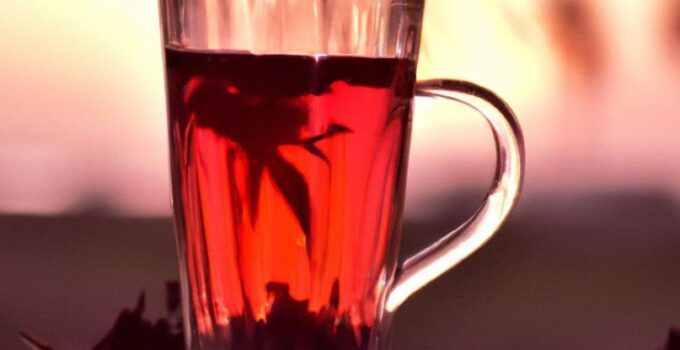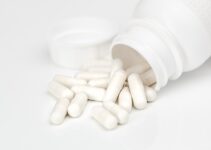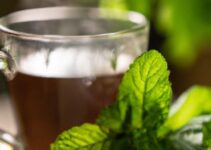Searching for a special something to add to your everyday? Hibiscus tea can give you wellbeing advantages! But, when’s the best time to enjoy it? Don’t worry, this article will show you! We’ll tell you when to make the most of this incredible drink!
Table of Contents
What is Hibiscus Tea?
Hibiscus tea is a tasty brew made from dried petals of the hibiscus flower. It’s tart and cranberry-like, and can be enjoyed hot and cold. Plus, it’s known for its vibrant red color and the many health benefits it brings.
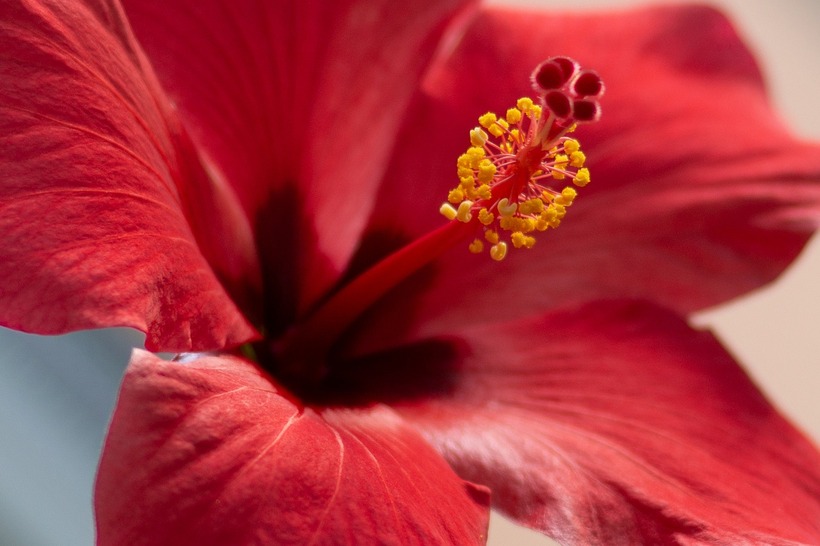
This herbal tea has been consumed for centuries due to its medicinal properties, it’s rich in antioxidants, which fight against free radicals and reduce inflammation. Plus, it may help lower blood pressure and cholesterol.
What’s cool about hibiscus tea, is that it’s versatile. It can be brewed alone, or blended with other herbs or fruits to create unique flavors, try blending it with mint or ginger for a refreshing zing.
A study published in the Journal of Ethnopharmacology found that hibiscus tea may have anti-cancer properties. It showed certain compounds in hibiscus extract could inhibit the growth of cancer cells.
The Best Time to Drink Hibiscus Tea
Hibiscus tea is a delight with its bright color and tangy flavor. When to drink it depends on the desired effects.
In the morning, hibiscus tea can wake up the senses and invigorate the mind. Plus, it’s full of antioxidants.
In the afternoon, it’s a great substitute for calorie and caffeine-filled drinks.
At night, it can help relieve stress and lead to a better night’s sleep.
Pro Tip: For extra flavor and nutrients, add some lemon juice or honey.
How Often Can You Drink Hibiscus Tea?
If you’re pondering the ideal frequency to savor hibiscus tea, here’s what you should be aware of. You can consume it daily – but not exceeding three cups per day is recommended.
- 1. Moderation is vital – Consuming hibiscus tea in moderation is best, as it may have an effect on blood pressure and digestion.
- 2. Take it slow and observe – If you’re trying hibiscus tea for the first occasion, begin with one cup and notice how your body responds before increasing.
- 3. Account for individual factors – Things like age, health conditions, and medications may influence how often you should drink it.
- 4. Balance with other fluids – Make sure you balance your fluid intake by including other hydrating drinks alongside hibiscus tea.
Excessive consumption of hibiscus tea may cause adverse effects like lowered blood pressure or an upset stomach. So, it’s essential to limit the number of cups per day.
To make the most of your hibiscus tea, try timing your consumption throughout the day. For example:
- Start the day with a cup of hibiscus tea to invigorate your morning with its refreshing taste and potential benefits.
- Have a cup in the afternoon instead of sugary drinks or caffeinated beverages.
- Relax in the evening with a warm cup of hibiscus tea as part of your routine.
By controlling your intake and adapting it to your preferences, you can fully enjoy the flavors and potential advantages that hibiscus tea has to offer. However, always pay attention to your body and make the necessary adjustments.
Keep in mind, hibiscus tea is a delightful drink, but moderation and personalization are essential when deciding how often to indulge in this delicious infusion.
What Does Hibiscus Tea Taste Like?
Hibiscus tea offers a unique flavor to tantalize your taste buds. It’s tangy and tart, with a hint of sweetness. This delightful blend creates a refreshing and energizing experience.
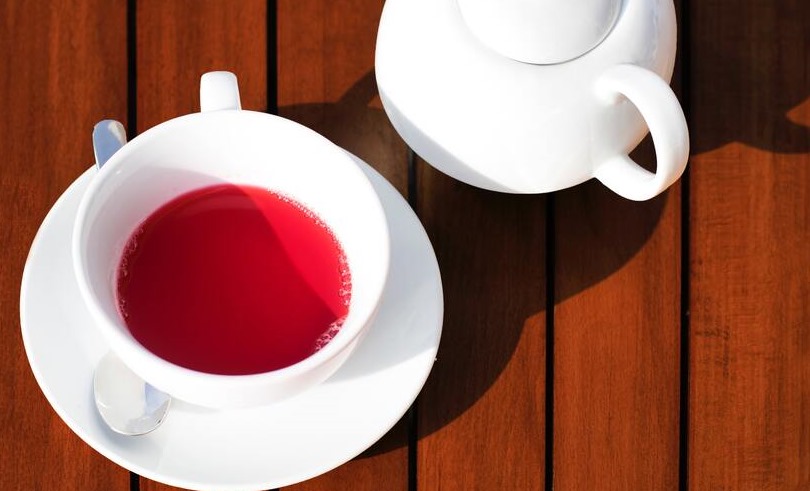
As you sip this vibrant beverage, you’ll notice its cranberry-like tartness. This is balanced by a hint of natural sweetness. It leaves a dry sensation in your mouth – one that will make you want more.
What sets hibiscus tea apart? Its ruby red color! This visual appeal adds to the overall experience. With each sip, you can feel a burst of energy and vibrancy.
For those seeking something special in their drink, hibiscus tea is a must-try. It’s a delightful alternative to traditional teas. Enjoy its tangy-sweet notes – an adventure for your taste buds! Try hibiscus tea today – it’s sure to awaken your senses and leave you wanting more.
Benefits of Hibiscus Tea
Delight in the intriguing world of hibiscus tea! Unveil its secret perks that are sure to tantalize and captivate. Enjoy its crimson elixir and uncover hidden treasures within each cup.
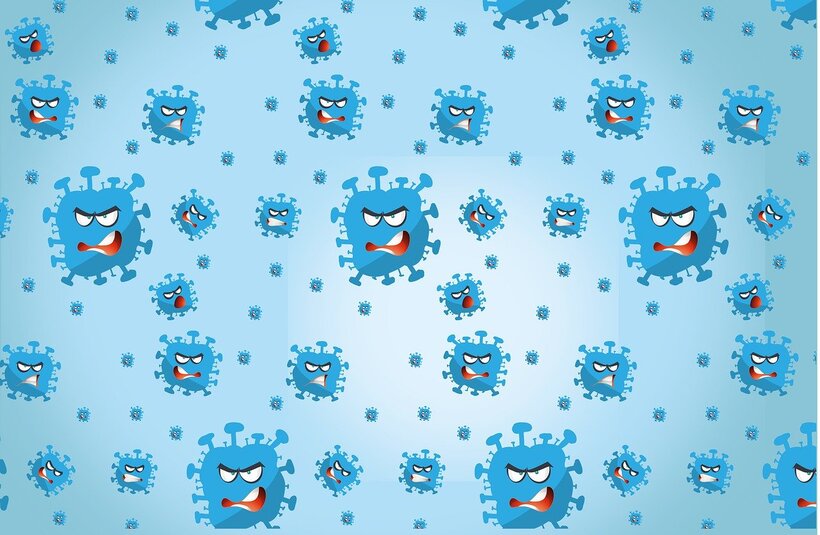
This beloved beverage offers numerous benefits. Such as:
- Boosting your immune system with an abundance of vitamin C.
- Aiding digestion with natural enzymes.
- Lowering blood pressure.
- Providing antioxidant support to fight free radicals and reduce the risk of chronic diseases.
Indulge yourself and savor each sip. Let the splendor of hibiscus tea transform your daily routine and charm your senses. Don’t miss out on this herbal wonder that brings joy to your palate and nurtures your well-being! For more benefits consider consuming green tea or chamomile tea.
Is Hibiscus Tea Safe During Pregnancy?
Hibiscus tea is popular for its yummy taste and potential health benefits. But is it safe during pregnancy? It’s complicated. Drinking hibiscus tea offers many advantages, but pregnant women should be careful.
When pregnant, it’s important to watch what you eat and drink. Compounds in hibiscus tea may cause menstruation and even miscarriage. So, expectant mums should limit their hibiscus tea intake.
But there are special factors to consider, studies suggest that hibiscus tea can help with blood pressure in pregnancy. High blood pressure is dangerous for mums-to-be, and consuming hibiscus tea as part of a balanced diet with doctor’s advice may prove helpful.
So if you are expecting and unsure about drinking hibiscus tea, it’s best to be cautious. Get expert advice about the safety of sipping hibiscus tea during pregnancy. Your wellbeing and your baby’s health are worth the effort.
How to Make Hibiscus Tea?
Hibiscus tea – a refreshing sippable delight! Here’s a simple guide to make this yummy drink:
- Gather the ingredients: dried hibiscus flowers, water and sweetener (optional).
- Brew the tea: Boil the water in a saucepan, add the hibiscus flowers, reduce heat and simmer for 15 mins. Let the mixture steep for another 5 mins.
- Strain and serve: Place a strainer over a teapot or pitcher and pour the tea. Add sweetener if desired and serve hot or cold.
For an extra twist, garnish with lemon slices or mint leaves.
This herbal infusion has been enjoyed for centuries due to its numerous health benefits. A study in the Journal of Food Science even suggests that consuming hibiscus tea may help lower blood pressure. So why not give it a try? It’s delicious and offers potential health advantages.
Did you know hibiscus tea has an ancient history? Dating back centuries, it was enjoyed by people in Egypt and Sudan, it’s praised for its health benefits, like boosting heart health and reducing hypertension. People still love it for its delicious taste and potential wellness advantages.
Pros and Cons of Drinking Hibiscus Tea
| Pros | Cons |
|---|---|
| ✔ Rich in Antioxidants: Hibiscus tea is packed with antioxidants like flavonoids and anthocyanins, which can help protect cells from damage caused by free radicals. | ❌ Potential for Interactions: Hibiscus tea may interact with certain medications, such as antihypertensive drugs, and affect their efficacy. Consult a doctor if you’re on medication. |
| ✔ Heart Health: Studies suggest that hibiscus tea may help lower blood pressure and improve cholesterol levels, contributing to better heart health. | ❌ Lower Iron Absorption: Hibiscus tea contains compounds that can inhibit the absorption of non-heme iron, which might be a concern for individuals with iron-deficiency anemia. |
| ✔ May Aid Weight Management: Some research indicates that hibiscus tea could contribute to weight loss by reducing body fat and improving metabolism. | ❌ Potential for Allergies: While rare, some individuals might be allergic to hibiscus. Discontinue use if you experience any adverse reactions. |
| ✔ Digestive Support: Hibiscus tea is believed to have mild diuretic and laxative effects, which could potentially aid digestion and alleviate constipation. | ❌ Sour Taste: The naturally tart flavor of hibiscus tea might not be appealing to everyone. Sweeteners can be added, but this might affect its potential health benefits. |
| ✔ May Help Manage Blood Sugar: Preliminary studies suggest that hibiscus tea might have a positive impact on blood sugar levels, which could benefit individuals with diabetes. | ❌ Dental Health Concerns: The acids in hibiscus tea might weaken tooth enamel over time. Rinsing your mouth with water after consumption can help mitigate this. |
| ✔ Hydration: Hibiscus tea is caffeine-free and can be a flavorful alternative to water, helping you stay hydrated. | ❌ Pregnancy and Fertility: Some sources recommend avoiding hibiscus tea during pregnancy, as it might influence hormone levels and potentially affect fertility. |
| ✔ Flavor Variety: Hibiscus tea has a unique, tangy taste that can be enjoyed hot or cold. It can also be blended with other herbs or fruits to create diverse flavors. | ❌ Moderation is Key: Excessive consumption of hibiscus tea might lead to digestive discomfort, as well as potential interactions with medications. |
Remember that individual reactions and benefits can vary, and it’s a good idea to consult with a healthcare professional before making significant changes to your diet, especially if you have any existing health conditions or are taking medications.
Interesting Facts About Hibiscus Tea
Hibiscus tea not only refreshes you, but also offers many health benefits. Here are some interesting hibiscus tea facts:
- The tea is made from dried petals of the hibiscus flower, giving it a red color.
- It has a tart and tangy flavor similar to cranberry juice.
- It contains high levels of antioxidants, which protect against cell damage.
- Drinking hibiscus tea may lower blood pressure due to its natural diuretic properties.
- It may also help with weight loss by increasing metabolism and reducing fat absorption.
- It’s caffeine-free, and contains vitamin C and other minerals that strengthen the immune system.
- It has anti-inflammatory properties beneficial for digestive issues and inflammation-related conditions.
- Studies have shown it may regulate cholesterol levels.
You can add a natural sweetener like honey to enhance the taste. Don’t over-consume though, as it may upset your stomach. To make a stronger infusion, steep the petals for longer. Enjoy hot or cold to benefit from hibiscus tea!
Conclusion
Hibiscus tea is an amazing beverage! It has lots of health benefits, and its taste is yummy. When to consume it? That depends on you and your goals.
In the morning, have a cup and get energized. Its caffeine content and antioxidants will jumpstart your day in a positive way.
At night, enjoy a cup for a calming sensation. Its soothing properties can help you sleep better.
At lunch or dinner, hibiscus tea can be a great palate cleanser. It also has diuretic properties that help detoxify your body.
Overall, there’s no “perfect” time to drink hibiscus tea—it’s all up to you!
Frequently Asked Questions
What is the best time to drink hibiscus tea?
The best time to drink hibiscus tea is in the morning or early afternoon. It can be a great substitute for your regular morning coffee or as a refreshing beverage during lunchtime.
Can I drink hibiscus tea before bed?
It is not recommended to drink hibiscus tea right before bed as it can have a diuretic effect, which may increase the frequency of urination. This can disrupt your sleep patterns.
Should I drink hibiscus tea on an empty stomach?
It is generally safe to drink hibiscus tea on an empty stomach. However, some people may experience mild stomach discomfort, so it’s best to have it with a small snack or after a meal if you are sensitive to acidic beverages.
How many cups of hibiscus tea can I drink in a day?
It is recommended to consume hibiscus tea in moderation. One to two cups per day is considered safe for most people. Consuming excessive amounts may lead to digestive issues or interact with certain medications.
Can hibiscus tea be consumed during pregnancy?
Pregnant women should exercise caution while consuming hibiscus tea. It is best to consult a healthcare professional before including it in your diet, as excessive consumption may affect hormone levels and potentially lead to complications.
Can I take hibiscus tea if I have low blood pressure?
Hibiscus tea has been reported to have a mild blood pressure-lowering effect. If you have low blood pressure or are taking medications for hypertension, it is advisable to monitor your blood pressure regularly and consult your doctor before consuming hibiscus tea regularly.
